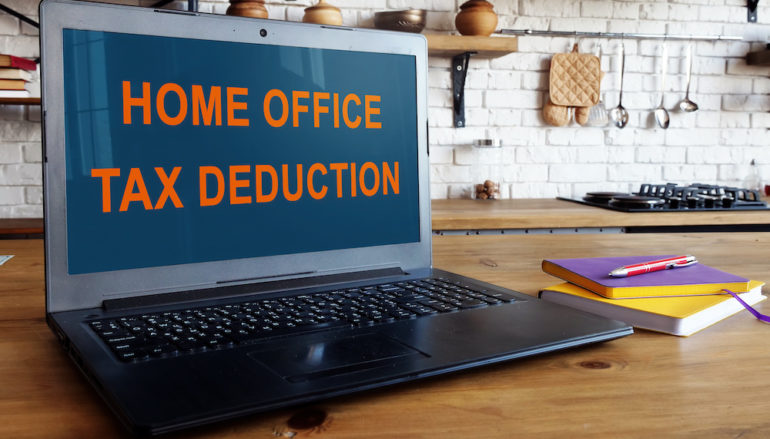If you run your business from home, you should know the IRS rules for claiming the home office tax deduction. Taking the deduction is a great way to save on your taxes, but you must follow these qualifying rules to avoid an audit.
Who qualifies for a tax deduction?
If you are a W-2 employee but work from home, you cannot claim the home office deduction against your employer-paid income, even if your employer requires you to work from home. But if you are self-employed and/or own your own business, and your home is your workplace, you can apply the home office tax deduction to income reported on Form 1099. If you have an employer but also have a side hustle where you’re your own boss, the tax deduction applies only to the portion of your income reported on a 1099.
What qualifies as a home office?
To qualify for the home office tax deduction, you must work in a space dedicated exclusively to your self-employment. A bedroom, for example, that you use only as your office qualifies. But your office space does not have to be an entire room. It can be a portion of a room that is otherwise used for other purposes, so long as the space for your work is clearly delineated and used exclusively for your self-employment income. The operative word is “exclusively.” You cannot blur the line between office space and personal space without risking the IRS disallowing the deduction and assessing a penalty.
The space on which you are basing the deduction must be your principal place of business, the place from which you perform administrative functions such as invoicing and making phone calls. This does not mean you don’t qualify for a home office tax deduction if your work takes you to customers’ homes or businesses to perform work.
What can you deduct?
The deduction applies to your mortgage payment, insurance, property taxes and your utilities. But you can only claim an amount equal to the percentage that your home office’s square footage represents of your home’s total square footage. For example, if your home has 1,800 square feet and your dedicated office space is 150 square feet, the IRS allows you to deduct 8 percent of the expenses listed above from your 1099 income.
(Incidentally, you can use this same percentage to get the business to reimburse you a portion of your mortgage and home expenses. Assuming you are keeping your home and business expenses separated — and you should — your business can write you a personal check for the portion of those expenses associated with the home office.
Are you at risk of an audit?
Taking the home office deduction does not mean you are more likely to be audited. But you should still follow the rules scrupulously to minimize the possibility the deduction will be disallowed. Consult with a tax professional if you are uncertain about any aspect of taking the deduction. Keep invoices, receipts, proofs of payment and other documents relating to home and business expenses to make tax preparation easier.
Related – How to Buy a House for Your Home Business


